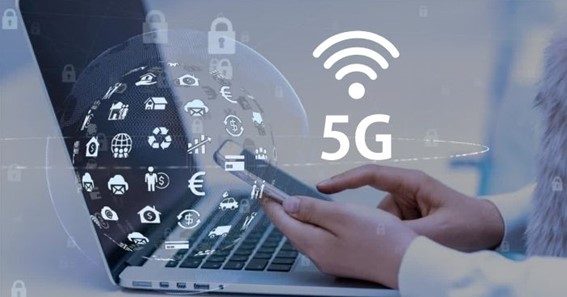The fifth-generation mobile network, commonly known as 5G, is the latest and most advanced wireless communication technology available. It is designed to deliver high-speed internet connectivity to mobile devices, including smartphones, tablets, and laptops, at an unprecedented level. With 5G, users can experience faster download and upload speeds, lower latency, and greater network reliability than ever before. In this article, we explore the features and benefits of 5G, and how it is set to revolutionize the way we live, work and communicate.
What is 5G?
5G is the fifth generation of mobile network technology that succeeds the previous generations – 1G, 2G, 3G, and 4G. It is designed to provide faster download and upload speeds, lower latency, and greater network reliability than its predecessors. 5G operates on higher frequency radio waves than 4G, which allows it to transmit more data at faster speeds. It also uses a new network architecture that separates the control plane and user plane, enabling it to deliver faster response times and improved reliability.
Features of 5G
There are several key features that make 5G stand out from previous mobile network technologies. These include:
Faster speeds: According to 5G, upload and download speeds will be 100 times faster than they were with 4G. This means that users can download movies, music, and other large files in seconds, rather than minutes.
Lower latency: Latency is the time it takes for data to travel from the user’s device to the network and back. 5G has significantly lower latency than 4G, which means that users can enjoy real-time applications, such as video conferencing and online gaming, without experiencing lag or delay.
Greater network reliability: 5G is designed to provide more reliable network connections, even in areas with high network congestion. This means that users can expect fewer dropped calls and faster data transfer rates, even in busy areas.
Improved battery life: 5G uses advanced network technologies that are more efficient than previous generations, which means that users can expect better battery life from their devices.
Benefits of 5G
The benefits of 5G are numerous and far-reaching, and they will have a significant impact on how we live, work, and communicate. Following are the key benefits of 5G include:
Enhanced mobile experiences: With 5g mobile phone, users can enjoy faster download and upload speeds, lower latency, and more reliable network connections. This means that they can stream high-quality video, play online games, and use other data-intensive applications with ease.
Improved productivity: 5G’s faster speeds and lower latency will enable businesses to improve their productivity by enabling faster data transfer rates and real-time collaboration. This will be especially important for businesses that rely on remote workforces and virtual collaboration tools.
Increased innovation: 5G’s high-speed connectivity and low latency will enable the development of new applications and technologies that were not possible with previous mobile network technologies. This includes the development of augmented reality and virtual reality applications, which will transform the way we interact with the world around us.
Improved public safety: 5G will enable the development of advanced public safety applications, such as real-time traffic monitoring, smart traffic lights, and emergency response systems. These applications will help to reduce traffic congestion, improve emergency response times, and enhance public safety.
